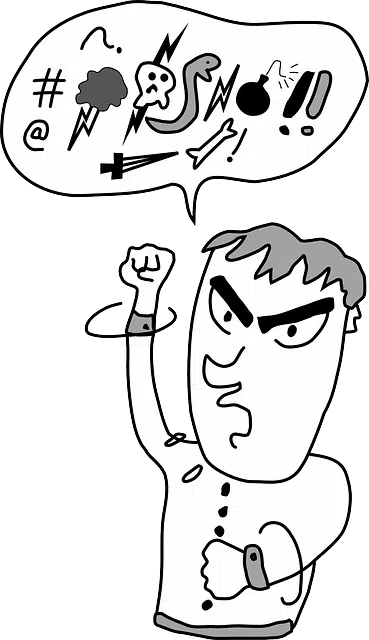
Profanity is incendiary or ordinary.
There are many existing theories about the origin of the term profane . However, one of those that is considered most accurate is the one that establishes that it would derive from the Latin sus , which can be translated as "pig" .
Soez is an adjective that is used to describe what is uncultured, ordinary, gross, embarrassing or indecent . The term is usually applied with reference to notions and expressions that a community prefers not to use because it considers them uncivilized or aggressive.
Words are defined as profane based on a social convention . That is to say: the community of speakers, based on a cultural agreement that is usually built over time, determines foul language and does not use it. In this way, people who use foul words are marked as rude or vulgar .
foul language
It is important to establish the existence of what is directly known as foul language . This has occupied a relevant role within the field of literature, as it has been used in different types of works or as a fundamental and characteristic element of different types of characters.
Specifically, it is determined that this language has been present in the aforementioned literature in very diverse ways, among which we would highlight these: threats, insults, emphasis, meanings, double meanings, dysphemisms, sarcasms and even blasphemy. The latter is a word that is used to refer, above all, to certain types of profane terms that are considered as such by the religious sphere and that are considered to be a direct attack on it. However, that is not true, since many times these foul words are expressed simply in a natural way or because they are "habitual." We are referring, for example, to "I fell* into di*."

Insults are part of foul language.
a taboo
Profanity, in general, threatens institutions or refers to a taboo . There are foul words that are related to sexuality, family ties, religion and eschatology . Profanity terms can also be insults linked to physical or other defects, which are used in order to offend someone.
Many times foul language is associated with machismo or sexual harassment . If a man , upon passing a woman on the street, makes a crude comment with sexual content, he will have demonstrated his position of power in a sexist society, since he is aware that this type of statement offends or makes women uncomfortable. but yet he pronounces it the same.
Use of profanity
We already know that there are many famous phrases by significant figures that exist and that have been passed down from generation to generation and precisely one of those refers to foul language. This is a statement by the important philosopher Nietzsche who stated that "the foulest word and the rudest letter are better, more polite, than silence."
In certain contexts, profanity allows an expression to be emphasized . For example, if a young Argentine calls Lionel Messi "a hell of a player" , he will be praising the footballer's talent and not making a negative comment.
